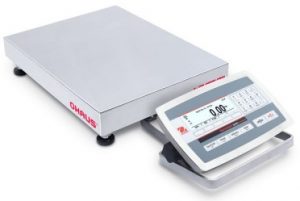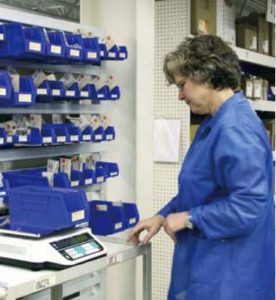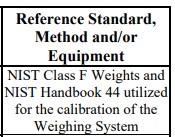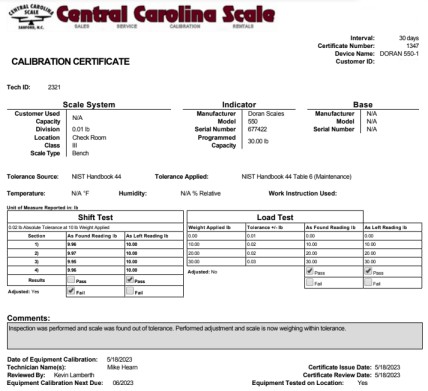If you do any research on the internet about scale companies and ISO, then most of the time you will only read about how great the certification is and how that is the only way to go. Well, we are going to provide you with a different point of view on the question, should you choose an ISO certified scale company?
The International Organization for Standardization is an international independent, non-governmental organization with a membership of 168 national standards bodies. Their history can be traced back to 1946. The organization develops and publishes international standards. The purpose of achieving ISO certification is to ensure the safety and quality of the product or service.
There is certainly an argument to be made for the benefit of a scale manufacturer (or any manufacturer) to have quality guidelines and to be ISO compliant. In this situation, it likely makes really good sense. In fact, most of our top scale manufacturers that we offer are ISO 9001. It is a good thing for companies with a lot of employees or companies that build things to a consistent quality level. It’s essentially all about documenting your process and training your staff to follow that process so you produce a consistent product.
However, for a small scale service company with less than ten employees…. does it really make sense to spend thousands of dollars just to have an independent group “approve” or “accredit” how you’ve been successfully operating your business for over forty years?

BENEFITS FOR A SCALE COMPANY TO BE ISO CERTIFIED
The ISO certification for scale companies is referred to as ISO/IEC 17025. In order to earn ISO 17025 certification, an industrial scale company must survive an accreditation process from a certified third-party organization that is often expensive and time consuming. And, that’s just the approval, the scale company will also be evaluated every few years in order to renew their certification.
If a scale company has earned ISO 17025 certification they can then boast about their ability to provide high quality precise testing and calibration results and how they can follow a quality management system.
Some of the external organizations that provide this certification to scale companies are the American Association for Laboratory Accreditation (A2LA) and the Perry Johnson Laboratory Accreditation (PJLA). The process of becoming ISO certified takes time and costs money and of course there is a renewal process that we mentioned earlier which also costs money.

BUT I HAVE TO USE A CERTAIN TYPE OF SCALE COMPANY….
One area that is often misunderstood is what customers require or don’t require. Often a customer will be under the impression they can only use a ISO 17025 certified scale company, as specified by their internal quality manual.
The fact is that scale companies are not required to have ISO 17025 accreditation. There are some folks who will argue that the ISO accreditation provides extra credibility to the scale company and that having an ISO 17025 certificate of calibration displays superior quality control, as opposed to getting a non-ISO 17025 certified calibration of your scale. You’re also likely to pay a higher hourly rate for this type of scale service as well, even though the scale company is using the same test weights as any other legitimate scale company.
NEGATIVES FOR A SCALE COMPANY TO BE ISO CERTIFIED
So you could almost compare three different categories: (1) ISO scale companies, (2) scale companies who achieved ISO and didn’t renew (but still employ some of the positives w/o the recurring fees) and (3) those that are truly non-ISO scale companies.
But for simplicity, let’s take a moment to truly compare an ISO certified scale company versus a non-ISO scale company.
The following are important points to remember. You can also argue that a scale company, whether ISO or not, is using: the same Class F weights. Those same test weights are tested at the state lab each year (traceability to NIST) for both scale companies. Both scale companies have licensed scale technicians. Both scale companies are documenting the results of the scale check online using Pass / Fail calibration software with tolerances, etc…. So, we have to ask the question…. What exactly are you paying extra $$$ for?
Let’s put this in table form just to make sure you see and understand this.
| ISO Scale Co. | Non-ISO Scale Co. | |
| Weights | NIST CLASS F | NIST CLASS F |
| Wts Certified? | State Lab Yearly (traceable) | State Lab Yearly (traceable) |
| Technicians | State Licensed | State Licensed |
| Cal Software | Pass/Fail w/ Tolerances | Pass/Fail w/ Tolerances |
| Hourly Charges | Typically ~ 25-50% higher | Typically ~ 25-50% lower |
So, once again we have to ask the question…. What exactly are you paying higher hourly rates for?
Basically a ISO 17025 certified scale company is calibrating scales as outlined in the scope of accreditation which is provided by the third party accrediting organization we mentioned above. However, don’t forget there is also the scale industry guideline known as Handbook 44. This provides scale companies with an outline of expectations and tolerances at virtually no cost. In fact, some of the accreditations themselves actually reference the standard things that we use on a regular basis like Class F weights and HB44 in the Calibration Equipment and Reference Standards Used section. (see below)

ISO 17025 COSTS VERSUS BENEFITS
One of the motivations behind this article deals with a long time customer recently telling us the following… “we reviewed our calibration program and identified several opportunities, one of which was having a ISO certified supplier perform our equipment calibrations“.
So, essentially we lose a long time customer and the customer is going to hire another calibration company. The new cal company will be located further down the road, so travel expenses will increase. The new company will do exactly what we’ve been doing, with the exact same Class F weights that we use, except they have a fancy little graphic they can put on their calibration certs. Otherwise the certificates will be virtually the same as ours with weight amounts as found and as left listed. And, of course the new company will charge the customer more money to perform these tests.
Bottom-line for this article, should you choose an ISO certified scale company? Well, that’s up to you. Our point in this article is basically if you want to consider an ISO accredited scale company that is great. But don’t just automatically ignore scale companies that are not ISO 17025 — you just might be surprised at the affordable service rates, knowledgeable scale technicians, and the very high quality calibration certificates.

As mentioned, we did the whole ISO thing years ago. It was expensive and frankly in many areas it was overkill. Interestingly, years ago before we dropped our ISO certification, we asked our customers if they would be willing to pay more in hourly rate charges in order for us to continue to be ISO compliant. Almost all said NO.
In full disclosure, we did keep a few things in place from ISO (minus the recurring renewal fees.) And speaking of fees, it makes you wonder why does the accreditation certificate expire every two years? If you have a proven quality plan that you’ve adopted, isn’t that good enough? Apparently not. You have to be evaluated regularly which takes time and more money in order to continue to be accredited. Sorry but that seems a little greedy.
At CCS, we have processes in place. We have basic guidelines in place. We have training in place. If we do something wrong, we learn from it and try not to make that mistake again. Sprinkle in a little common sense and a lot of experience and that’s what happens when you’ve been in business since 1980. Best of all, we’re not having to pay someone thousands of dollars to document how to check a scale and then renew it every few years… And often that results in a lower hourly rate charge than other scale companies who are having to make up for all the lost time & effort and continuous “fees”.
If you are an ISO Customer, certificates of calibration are provided for each scale serviced. The certs show As Found and As Left values along with Pass/Fail. We also list which weights or weight kit was used for traceability.
One point worth mentioning is our suppliers that we represent, virtually all the top scale manufacturers that we offer products from are ISO 9001:2015, ISO 13485:2016, and/or VCAP certified companies. So if you purchase equipment from us, keep that in mind.

If a scale company is willing to go through the process of becoming ISO certified, good for them. As mentioned before, we’ve done that before as well. Taking the steps to maintain and renew ISO certification shows that the scale company is trying to do what its customers think is best. But, that takes a lot of time and money. The costs will most certainly be passed on to you, the end user and/or consumer. And as we mentioned earlier, no matter what scale company you call… the test weights are the same, and they get checked just as often by the state lab. So, again we have to ask… what exactly are you paying more $$$ for?
Searching around the internet, we at CCS seem to be in the minority. Most scale companies appear to have the accreditation. Most of the time, in our opinion, these are added (ongoing) costs that are really not necessary. We already have a process and we train our staff to follow that process each day. This has been our stance on this for many years. Now one day, we may eventually change our mind and go back to being “accredited” if enough people ask for it. As the saying goes, you never say never.
In many ways, if we were looking for a scale company to utilize, we would recommend a company like CCS, who’s had ISO guidelines in place and learned from them but is now free to operate and adapt as needed without a bunch bureaucratic red tape and ongoing fees to deal with.